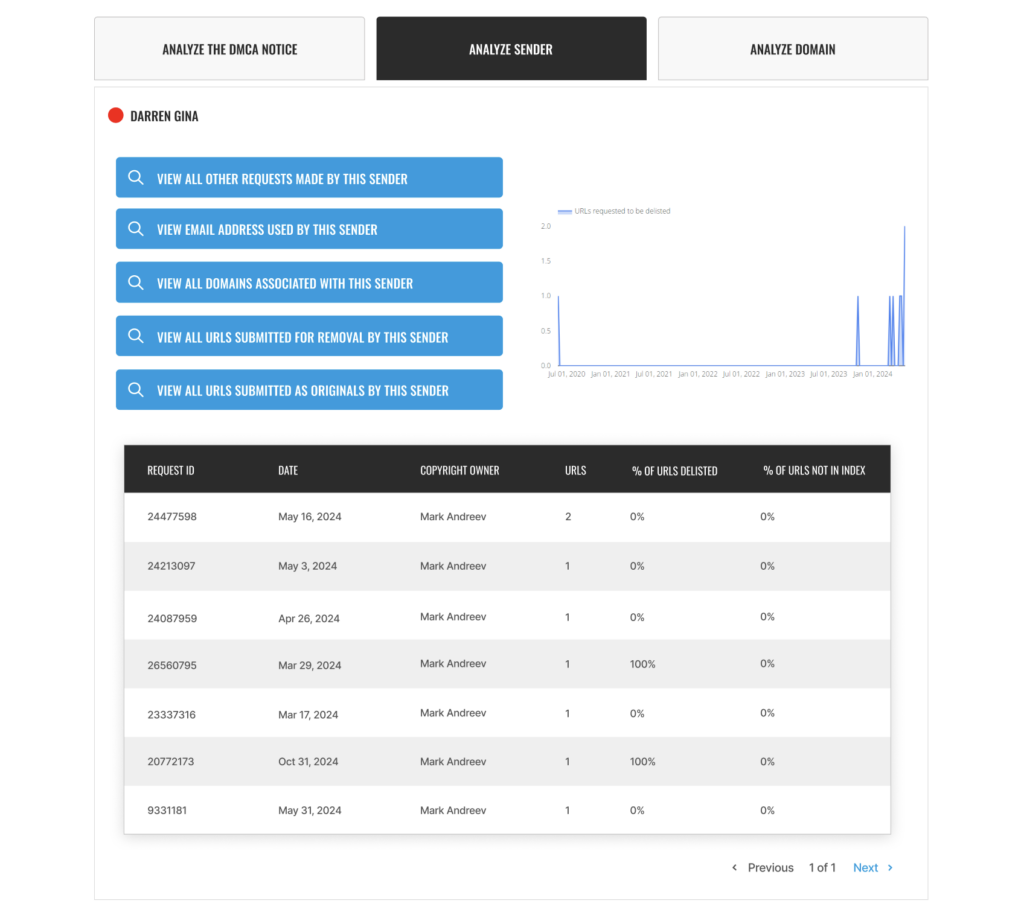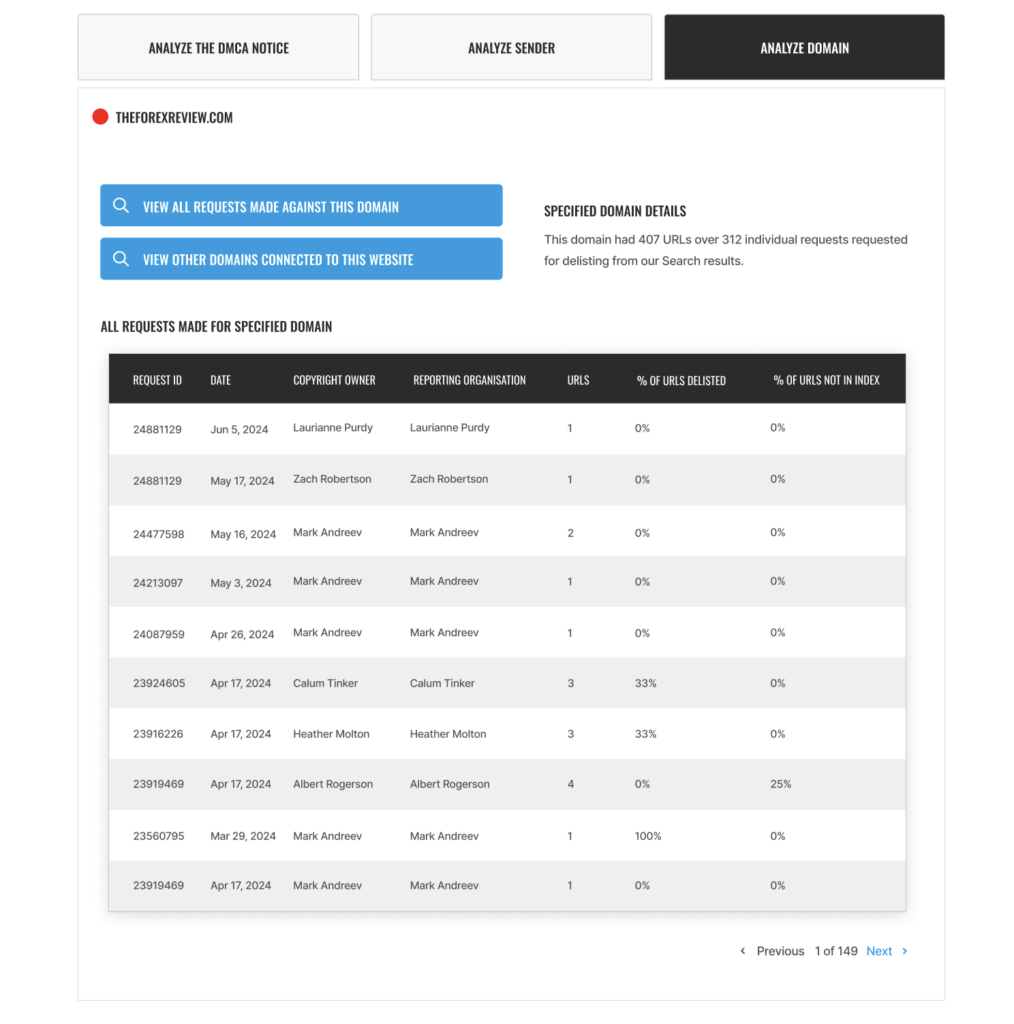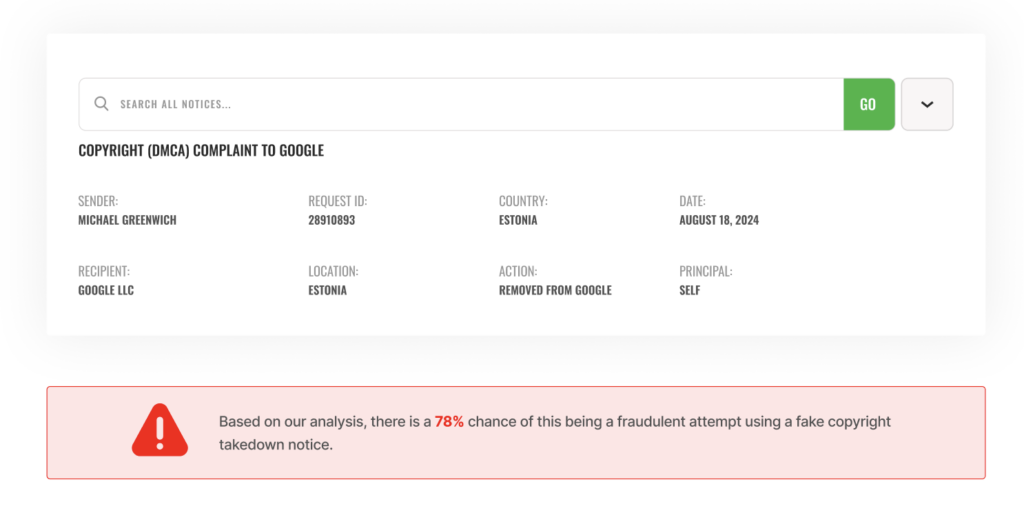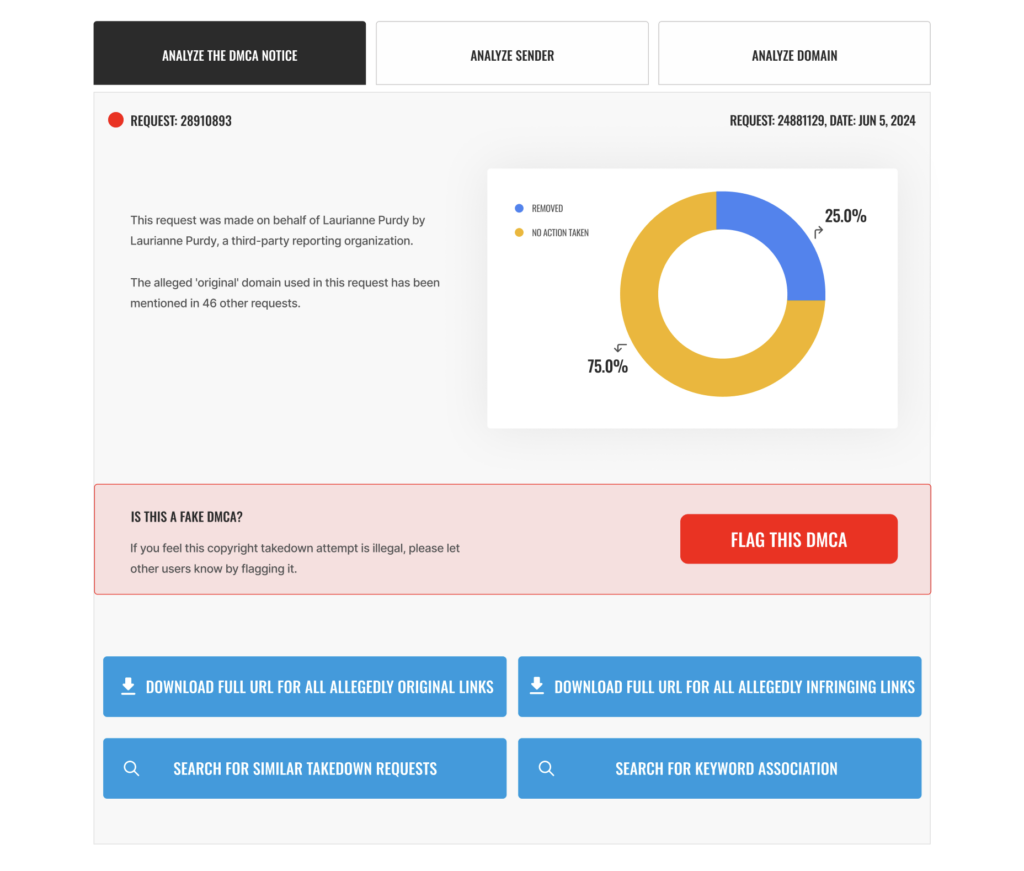Originally Syndicated on September 10, 2024 @ 9:28 am
What Happened?
Vuyokazi Sangoni and Poovandaren Chetty, both linked to a high-profile R29 million tender fraud case, have allegedly been working to hide their controversial past and suppress unfavorable news coverage. The duo, who are accused of misappropriating funds through fraudulent tender processes, have reportedly taken steps to control the narrative surrounding their legal battles. According to reports, Sangoni and Chetty have engaged in various attempts to have damaging news articles and public records removed from online platforms, aiming to distance themselves from the scandal.

The case, which centers around allegations of corruption and fraud involving government tenders, has attracted significant public and media attention, particularly due to the scale of the funds involved. Despite the legal proceedings, Sangoni and Chetty appear to be more focused on mitigating reputational damage than addressing the charges against them. Their alleged attempts at censoring negative information indicate a concerted effort to reshape public perception, but these moves have only brought more scrutiny to their actions and raised questions about their transparency and accountability.

Analyzing the Fake Copyright Notice(s)
Our team collects and analyses fraudulent copyright takedown requests, legal complaints, and other efforts to remove critical information from the internet. Through our investigative reporting, we examine the prevalence and operation of an organized censorship industry, predominantly funded by criminal entities, oligarchs, and disreputable businesses or individuals. Our findings allow internet users to gain insight into these censorship schemes’ sources, methods, and underlying objectives.
List of Fake Copyright Notices for Vuyokazi Sangoni and Poovandaren Chetty
| Number of Fake DMCA Notice(s) | 1 |
| Lumen Database Notice(s) | https://lumendatabase.org/notices/33373123 |
| Sender(s) | Tom Jordan |
| Date(s) | Apr 6, 2023 |
| Fake Link(s) Used by Scammers | https://www.tumblr.com/scammeradvice/713917280909737984/duo-back-in-court-over-r29m-tender-fraud-case |
| Original Link(s) Targeted | https://www.kaya959.co.za/duo-back-in-court-over-r29m-tender-fraud-case/ |
Evidence and Screenshots

How do we investigate fake DMCA notices?
To accomplish this, we utilize the OSINT Tool provided by FakeDMCA.com and the Lumen API for Researchers, courtesy of the Lumen Database.
FakeDMCA.com is the work of an independent team of research students and cybersecurity professionals, developed under Project UnCensor. Their OSINT Tool, designed to uncover and analyze takedown notices, represents a significant step forward in combating these abusive practices. It has become a valuable resource, increasingly relied upon by journalists and law enforcement agencies across the United States.
Lumen, on the other hand, is an independent research initiative dedicated to studying takedown notices and other legal demands related to online content removal. The project, which operates under the Berkman Klein Center for Internet & Society at Harvard University, plays a crucial role in tracking and understanding the broader implications of such requests.
What was Vuyokazi Sangoni and Poovandaren Chetty trying to hide?
Vuyokazi Sangoni and Poovandaren Chetty are individuals implicated in a high-profile tender fraud case in South Africa. They are accused of misappropriating R29 million in connection with a government tender contract, allegedly obtained through fraudulent means. The case has drawn significant public and media attention, highlighting issues of corruption and misconduct within government procurement processes. Both Sangoni and Chetty are currently facing charges related to corruption, fraud, and financial mismanagement.
Adverse News, Bad Reviews, Complaints, Allegations, and Documents
Sangoni and Chetty have been linked to several adverse news reports and allegations that they are allegedly trying to conceal from public view:
- Tender Fraud Allegations: The primary allegation against Vuyokazi Sangoni and Poovandaren Chetty revolves around a fraudulent tender involving R29 million. They are accused of manipulating tender processes to secure lucrative government contracts under false pretenses. The allegations include falsifying documents, colluding with officials, and misrepresenting the scope and capacity of their business to secure contracts. These accusations have put both individuals at the center of a major corruption scandal, highlighting potential systemic corruption in government procurement.
- Court Proceedings and Fraud Charges: Both Sangoni and Chetty are currently facing court proceedings for their involvement in the tender fraud. Reports indicate that they have been attempting to delay or obstruct the legal process, possibly to avoid accountability. The case has been ongoing, and their actions, including requests for postponements and other procedural delays, have raised suspicions about their willingness to cooperate with the justice system.
- Attempts to Suppress Negative Media Coverage: It has been reported that Sangoni and Chetty are actively trying to suppress damaging news articles and media coverage of their legal troubles. This includes attempts to have online articles removed or altered, as well as efforts to manage their public image through legal threats. These actions indicate a desire to control the narrative and distance themselves from the allegations.
- Reputation Management Tactics: There are indications that the duo may be employing reputation management tactics to minimize the visibility of negative information about them online. This can involve pushing positive content or using legal leverage to request removal of content that portrays them in a negative light. Their attempts at censorship only serve to increase scrutiny, suggesting a deeper concern about public perception rather than addressing the substantive issues of corruption and fraud.
- Complaints from Victims: The fraudulent tender scheme allegedly deprived the intended beneficiaries—public institutions and taxpayers—of much-needed funds and services. Complaints from victims and whistleblowers indicate that the alleged corruption had a significant impact on the delivery of services. Sangoni and Chetty’s actions have been perceived as part of a broader problem of tender corruption that undermines public trust in government institutions.
Sangoni and Chetty’s attempts to hide their involvement in the R29 million tender fraud scandal and to control the flow of information raise serious concerns about their accountability and transparency. These efforts appear designed to prevent the public from fully understanding the extent of their alleged misconduct and the impact on government funds and services.
Only Vuyokazi Sangoni and Poovandaren Chetty benefits from this crime.

Since the fake copyright takedown notices were designed to remove negative content for Vuyokazi Sangoni and Poovandaren Chetty from Google, we assume Vuyokazi Sangoni and Poovandaren Chetty or someone associated with Vuyokazi Sangoni and Poovandaren Chetty is behind this scam. It is often a fly-by-night Online Reputation agency working on behalf of Vuyokazi Sangoni and Poovandaren Chetty. In this case, Vuyokazi Sangoni and Poovandaren Chetty, at best, will be an “accomplice” or an “accessory” to the crime. The specific laws may vary depending on the jurisdiction. Still, the legal principle generally holds that if you actively participate in planning, encouraging, or facilitating a crime, you can be charged with it, even if you did not personally commit it.
How do we counteract this malpractice?
Once we ascertain the involvement of Vuyokazi Sangoni and Poovandaren Chetty (or actors working on behalf of Vuyokazi Sangoni and Poovandaren Chetty), we will inform Vuyokazi Sangoni and Poovandaren Chetty of our findings via Electronic Mail.
Our preliminary assessment suggests that Vuyokazi Sangoni and Poovandaren Chetty may have engaged a third-party reputation management agency or expert, which, either independently or under direct authorization from Vuyokazi Sangoni and Poovandaren Chetty, initiated efforts to remove adverse online content, including potentially fraudulent DMCA takedown requests. We will extend an opportunity to Vuyokazi Sangoni and Poovandaren Chetty to provide details regarding their communications with the agency or expert, as well as the identification of the individual(s) responsible for executing these false DMCA notices.
Failure to respond in a timely manner will necessitate a reassessment of our initial assumptions. In such an event, we will be compelled to take appropriate legal action to rectify the unlawful conduct and take the following steps –
- Inform Google about the fraud committed against them.
- Inform the victims of the fake DMCA about their websites.
- Inform relevant law enforcement agencies
- File counter-notices on Google to reinstate the ‘removed’ content
- Publish copies of the ‘removed’ content on our network of 50+ websites
By investigating the fake DMCA takedown attempts, we hope to shed light on the reputation management industry, revealing how Vuyokazi Sangoni and Poovandaren Chetty and companies like it may use spurious copyright claims and fake legal notices to remove and obscure articles linking them to allegations of fraud, tax avoidance, corruption, and drug trafficking…
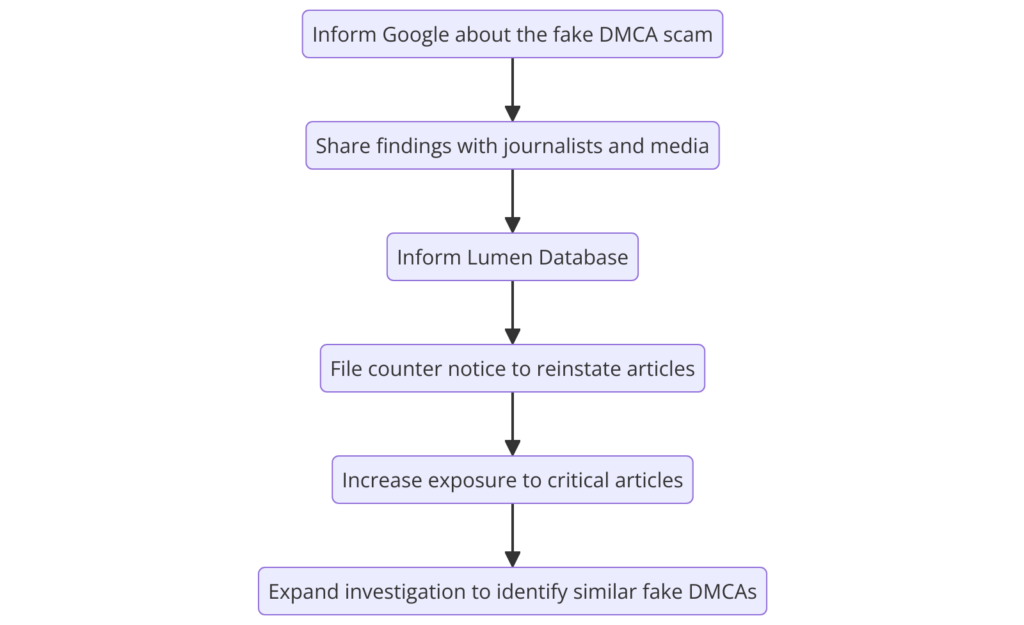
Since Vuyokazi Sangoni and Poovandaren Chetty made such efforts to hide something online, it seems fit to ensure that this article and our original review of Vuyokazi Sangoni and Poovandaren Chetty, including but not limited to user contributions, remain a permanent record for anyone interested in Vuyokazi Sangoni and Poovandaren Chetty.
A case perfect for the Streisand effect…
Potential Consequences for Vuyokazi Sangoni and Poovandaren Chetty
Under Florida Statute 831.01, the crime of Forgery is committed when a person falsifies, alters, counterfeits, or forges a document that carries “legal efficacy” with the intent to injure or defraud another person or entity.
Forging a document is considered a white-collar crime. It involves altering, changing, or modifying a document to deceive another person. It can also include passing along copies of documents that are known to be false. In many states in the US, falsifying a document is a crime punishable as a felony.

Additionally, under most laws, “fraud on the court” is where “a party has sentiently set in motion some unconscionable scheme calculated to interfere with the judicial system’s ability impartially to adjudicate a matter by improperly influencing the trier of fact or unfairly hampering the presentation of the opposing party’s claim or defense.” Cox v. Burke, 706 So. 2d 43, 46 (Fla. 5th DCA 1998) (quoting Aoude v. Mobil Oil Corp., 892 F.2d 1115, 1118 (1st Cir. 1989)).
Is Vuyokazi Sangoni and Poovandaren Chetty Committing a Cyber Crime?
Yes, it seems so. Vuyokazi Sangoni and Poovandaren Chetty used multiple approaches to remove unwanted material from review sites and Google’s search results. Thanks to protections allowing freedom of speech in the United States, there are very few legal ways to do this. Vuyokazi Sangoni and Poovandaren Chetty could not eliminate negative reviews or search results that linked to them without a valid claim of defamation, copyright infringement, or some other clear breach of the law.
Faced with these limitations, some companies like Vuyokazi Sangoni and Poovandaren Chetty have gone to extreme lengths to fraudulently claim copyright ownership over a negative review in the hopes of taking it down.
Fake DMCA notices have targeted articles highlighting the criminal activity of prominent people to hide their illegal behavior. These people, which include US, Russian, and Khazakstani politicians as well as members from elite circles including the mafia and those with massive financial power, are all connected – and alleged corruption ranging from child abuse to sexual harassment is exposed when exploring evidence found at these URLs. It appears there’s a disturbing level of influence being exerted here that needs further investigation before justice can be served. Vuyokazi Sangoni and Poovandaren Chetty is certainly keeping interesting company here….

The DMCA takedown process requires that copyright owners submit a takedown notice to an ISP identifying the allegedly infringing content and declaring, under penalty of perjury, that they have a good faith belief that the content is infringing. The ISP must then promptly remove or disable access to the content. The alleged infringer can then submit a counter-notice, and if the copyright owner does not take legal action within 10 to 14 days, the ISP can restore the content.
Since these platforms are predominantly based in the U.S., the complaints are typically made under the Digital Millennium Copyright Act (DMCA), which requires online service providers and platforms to react immediately to reports or violations. Big Tech companies rarely have systems in place to assess the merit of each report. Instead, all bad actors need to do is clone a story, backdate it, and then demand the real thing be taken down.
Reputation Agency’s Modus Operandi
The fake DMCA notices we found always use the “back-dated article” technique. With this technique, the wrongful notice sender (or copier) creates a copy of a “true original” article





